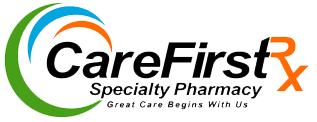Heart Health in Furry Companions
Studies have shown that congestive heart failure is on the rise, but not just in humans. This disease is on the rise in animals alike and pet owners need to be aware.
Congestive heart failure is a condition in which the heart is weakened and leads to a build of fluid in other organs such as the lungs. The heart in unable to pump the necessary amount of blood and the pressure of this leads to fluid buildup. The buildup of fluid in the lungs can cause inadequate oxygen consumption and oxygen transport though the blood stream. This disease, if not treated, can lead to death. Congestive heart failure is treatable, and the type of treatment depends in the underlying disease.
There are handfuls of distinct symptoms that could indicate a diagnosis of congestive heat failure. Some major symptoms include coughing, difficulty breathing, and fainting. All of these symptoms indicate a lack of adequate oxygen consumption. Other less indicative symptoms include weight loss, behavior changes, and limb weakness. If your pet exhibits any or several of these symptoms it is important to see your veterinarian.
Your veterinarian may suggest several different tests to examine your animal in order to receive a diagnosis. X-rays may be taken in order to get an image of the heart and lungs. Other tests include electrocardiograms, echocardiograms, and various blood tests. The use of one or more of these can help the veterinarian give the correct diagnosis.
When deciding on a treatment for animals, the main goal is to reduce the amount of fluid buildup in the lungs in order to increase the amount of available oxygen. Things such as medications, a variety of supplements, and a change in diet. There are many medicinal routes that can be taken in order to treat congestive heart failure. The most common forms include ACE inhibitors, dietetics, vasodilators, and positive inotropes.
ACE inhibitors are typically used in order to inhibit the production of specific enzymes that are related to the disease. Diuretics are beneficial in that they rid the body of extra fluid and reduce the amount retained in the lungs, which will in turn leave more room for oxygen. Vasodilators work by allowing the blood vessels to relax and decrease the pressure within the heart that leads to fluid buildup. The final drug type, positive inotropes, helps induce stronger heart beat and allow for greater blood flow to increase oxygen levels.
Providing your pet with a proper and nutrient rich diet can significantly help and in some cases even reverse the disease. It is necessary for your pet to maintain a healthy weight to prevent extra strain on the heart. Amino acids and Omega-3 fatty acids are important in maintaining your pet's health as well. These can be taken through supplementation or food sources.
As a pet owner of an animal with congestive heart disease, it is important to monitor several aspects of your animal's life. Things to look out for include difficulty breathing, loss of appetite, vomiting, and possible side effects from medication. If symptoms worsen, always seek help and reach out to your veterinarian.

Comments